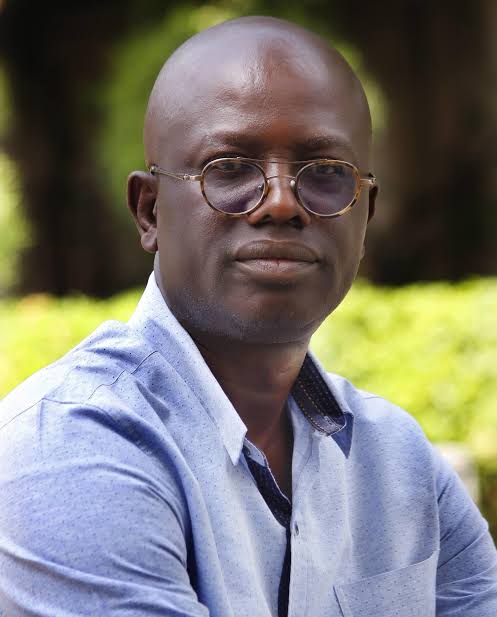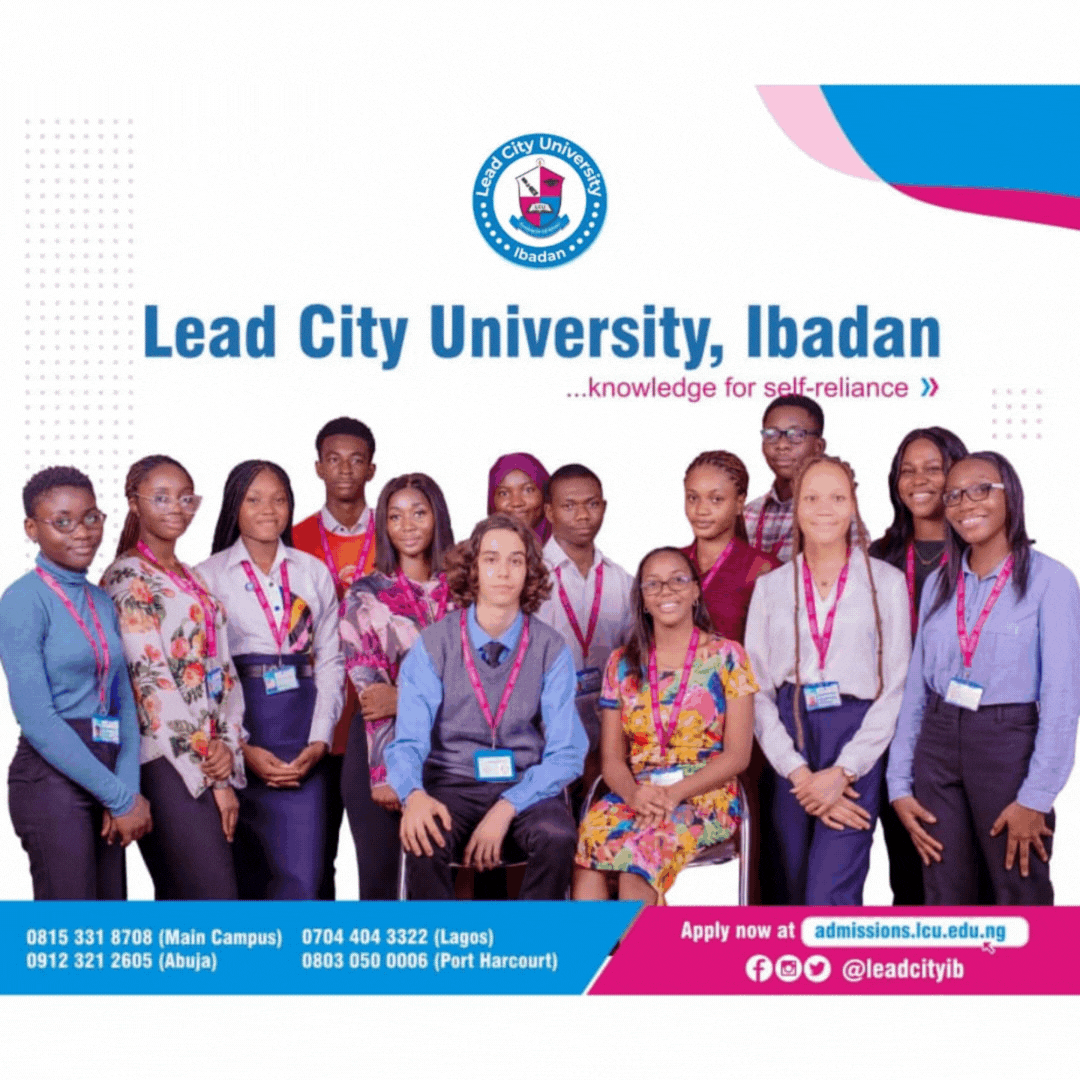By Olusegun Adeniyi
Street wisdom dictates that those in glass houses don’t walk naked. This seems lost on Asiwaju Bola Ahmed Tinubu and former Vice President Atiku Abubakar. The ruling All Progressives Congress (APC) presidential candidate and the flagbearer of the main opposition Peoples Democratic Party (PDP) have allowed their media managers to trade damaging allegations that question their own character and integrity. Each side has succeeded in painting the candidate of the other party as a criminal who is unworthy of the position being sought. While some Nigerians may be enjoying the entertainment, the tragedy of our situation is that either of these two septuagenarians could end up as our next president in a matter of weeks.
I once likened accusation and counteraccusation of impropriety by Nigerian politicians during campaign periods to the African folklore of three famished brothers eating from the same plate of food. Apparently losing out in the game of greed, the first brother remarked to no one in particular: ‘You are eating too fast’. To this, the second brother responded: ‘So you saw him’. The third brother completed the farce: ‘That was exactly what I wanted to say’!
The current circus started with the allegation by Michael Achimugu, a former aide to Atiku. In a video post that is making the rounds on WhatsApp and other social media platforms, Achimugu spoke about the sum of N100 million allegedly paid into a ‘Special Purpose Vehicle (SPV)’ for misappropriating public funds at a time he (Atiku) was vice president. Achimugu revealed other damaging things about Atiku, buttressing his claims with the audio of an incriminating conversation purportedly held with his former boss.
Hardly had the allegation hit the internet when spokesman for the APC Presidential Campaign Council, Festus Keyamo, went on media offensive. He also filed a writ of summons at the Federal High Court in Abuja asking that the Code of Conduct Bureau (CCB), Independent Corrupt Practices Commission and Other Related Offences Commission (ICPC), and the Economic and Financial Crimes Commission (EFCC) be compelled to investigate, invite and/or arrest Atiku over the allegation. What followed was predictable. The Atiku/Okowa Presidential Campaign Organisation called on the National Drug Law Enforcement Agency (NDLEA) and the EFCC to arrest and prosecute Tinubu over lingering drug peddling and money laundering allegations. Referencing Tinubu’s 1993 alleged money laundering and drug-related case in the United States, Atiku’s media team, including Dele Momodu and Daniel Bwala, said should the APC candidate win, “Nigerians will be plunged into a drug crisis that would make the Colombia situation a child’s play.” They also threw up sundry allegations of corruption and cronyism.
The APC and PDP have shared power at the centre and in the majority of the 36 states since the advent of the current democratic dispensation 24 years ago. That ordinarily should impose a measure of responsibility. So, if all that their presidential candidates have to offer in this election season are insults, abuses, and damaging allegations, then Nigerians should be concerned. What their campaigns are invariably telling the electorate is that a choice of either would be a democratic endorsement of the crimes and vices they are accusing each other of.
In their journal article on ‘Negative Campaign’, Richard R. Lau and Ivy Brown Rovner of the Department of Political Science, Rutgers University, New Jersey, United States argued that one of the most important decisions candidates make is “whether to run on their own merits—that is, their own policy ideas, past accomplishments, and personal strengths, which most observers would call a ‘positive’ appeal; or if instead their campaign will concentrate on the perceived weaknesses of their opponent’s policy proposals, prior policy failures, and/or personal peccadilloes”, which they described as a ‘negative’ appeal. Minders of the two parties prefer the latter.
Let me be clear here. As a journalist, I am aware that mudslinging could sometimes take the moral dimension of exposing the weakness of the other candidate in a sort of ‘buyers beware’ warning for voters. But most reasonable Nigerians are also aware that neither of these two candidates can genuinely throw stones. That is not even my concern. Whichever direction we look today, Nigeria is at a most challenging period in history. And with mounting debts amid low revenues, prospects for the future don’t look good either. So, we need those who aspire for leadership, especially at the highest level, to tell us how they intend to address the myriad of challenges that we currently grapple with and the ones that are bound to come.
The point we cannot ignore in this sordid drama is that when politicians lack depth of insight on pressing national issues, they revert to low level gutter snipes. With the language of political exchange drenched in mud, vitriol, and dirt, even the institutions of democratic society like the judiciary, police, security agencies etc are not safe. Besides, in the case of the two presidential candidates, many would have concluded that their exchanges are very revealing of who they are.
That two friends and associates of more than three decades can descend to this level of desperation is to put it mildly unfortunate. The real danger is how that could be transmitted to their followers when the election doesn’t go their way and the prospect of post-election violence. Yet, when aides get carried away by the excitement of the moment, that is when the adults in the room must show up to call them to order and draw the line. Therefore, it is in the enlightened self-interest of both Tinubu and Atiku to have some quiet words with their campaign managers. They must embrace a more sensible rule of engagement.
The Drama at Abuja Glo Office
When I saw my friend, Arinze Anapugars, Senior Communications Manager at Globacom, in an animated discussion with a group of officials last Friday at their Abuja head office where I had gone to resolve a pending issue with customer care, I knew something was amiss. It turned out that they were having a problem convincing the winner of a three-bedroom house in the Globacom ‘Festival of Joy’ promotion that it was for real. The young man chose to play Thomas and for 24 hours made life difficult not only for Glo staff but also the Nigerian Communications Commission (NCC) and the National Lottery Regulatory Commission (NLRC) officials who were witnesses to the promo.
As Arinze explained to me, the drama started last Thursday when following the draw, the number of Rilwan Ajamu Bello was picked. A call was immediately put to him from the venue of the draw. When told he had won a house in the Glo promo, the young man expressed no excitement. “Ok, thank you” was all he reportedly said. Prompted further by the Glo official why he was not excited about his luck, Bello responded sarcastically, “I am excited now, I am happy”. Asked to come down to the Glo office where the media and officials of NCC and NLRC were waiting, Bello promised to be there in 20 minutes as his office was not far away. One hour turned to two without the winner. Several other calls were made to Bello who kept playing the officials, apparently having concluded that it was a hoax.
When Glo officials realized Bello didn’t believe the news that he had won a house, they asked him to provide his WhatsApp number for a video call so he could see the small crowd that had gathered at their office. Bello claimed he was not on WhatsApp. Asked to provide the WhatsApp number of a nearby friend or colleague, he replied, “I don’t know anyone who uses WhatsApp”. When a Glo official explained to Bello why he needed to show up to complete the documentation process ahead of the presentation ceremony planned for the next day, he promised to be on his way. But the next thing he did was block the number that was used in calling him.
At this point, the Head of Glo Customer Care in Abuja, Aisha Garba, called Bello from another number to explain the genuineness of the win. Bello made the same promise that he would be with them. After about an hour and no sight of him, Bello was called up again. This time, Bello said he needed to secure permission from his boss before he could leave the office. When Aisha told him to hand the phone over to his boss or give her the number of the person, Bello then claimed his boss was not around.
Further interventions by the NCC and NLRC officials to convince the 28-year-old Mathematics graduate of Ekiti State University that he had indeed won a house in the Glo promo were to no avail. Messrs Adekanye Sunday and Iheanachor Chikodi of NLRC as well as Ibrahim Mahmud of NCC all took turns to speak to Bello on phone to persuade him to come over to Glo office. While Adekanye spoke to Bello in Yoruba, Mahmud spoke to him in Hausa language, since he understood and spoke both fluently.
When all these efforts failed to persuade the young man, Glo officials went a step further by looking up his frequently called numbers and then speaking to a friend of his to help talk to Bello that he had indeed won a house and that if he still failed to show up, the draw would be cancelled and another one would be held to select a new winner for the house. That worked. When Bello finally arrived at Gloworld on Aminu Kano Crescent last Friday afternoon, he spent time prostrating to the officials and apologizing for keeping everyone waiting. I was amused by the drama, having decided to wait until Bello’s arrival.
However, I have had to reflect on why Bello took so long to believe that he was not being scammed and my conclusion is that it has to do with the trust deficit in our society so we should not blame the young man. We live in a country where many people no longer believe in honest dealings. Because of that, one must be circumspect. Interestingly, there have been scientific studies on this issue. “Would you say that most people can be trusted? Or do you think you need to be very careful in dealing with others?” These were the questions posed by a 2015 Organisation for Economic Cooperation and Development (OECD) survey for citizens/residents in member countries as well as in in Brazil, China, India, Indonesia, Russia, South Africa, Argentina, and Saudi Arabia. In his analysis of the survey report for the World Economic Forum, Alex Gray concluded that “How much people trust each other is an indicator of how cohesive society is as a whole.”
Meanwhile, the reality of the Nigerian condition today is that trust is a most abused virtue. There are just too many scammers around. And this is not restricted to just individuals. There are also many unscrupulous organisations in both the private and public sectors that abuse trust. That perhaps explains why our country has become globally renowned for ‘419’ such that a June 2020 statement by the American Department of Justice (DoJ) had these damning lines: “Foreign citizens perpetrate many BEC (Business Email Compromise) scams. Those individuals are often members of transnational criminal organizations, which originated in Nigeria but have spread throughout the world.”
For our society to develop and thrive, we must begin to rebuild trust in ourselves and critical institutions.
You can follow me on my Twitter handle, @Olusegunverdictand on www.olusegunadeniyi.com
Share your story or advertise with us: Whatsapp: +2347068606071 Email: info@newspotng.com














